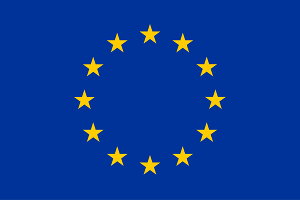
Creating added-value chemicals from bio-industrial CO2 emissions using integrated catalytic technologies
Objectives
- Developing and applying catalyst-based technologies for CO2 conversion to added-value chemicals.
- Design of an integrated process with zero or negative greenhouse gas Emissions.
- Validating technologies at TRL5 with industrial synthetic off-gases and providing sustainability and proofing socioeconomic and industrial feasibility.
- New business models and value chains in the CO2 utilisation sector.
General information
- Financial Framework: Horizon 2020
- Overall Budget: 6,641,110.75€
- Period: 01/05/2021 - 30/04/2025
- Fields: Climate change mitigation, Descarbonization, Bioprocessing technologies, Applied and industrial chemistry, Bioproducts, Bioderived bulk and fine chemicals.
- Website: www.catco2nvers.eu
In 2017, EU GHG emissions, including emissions from international aviationEurope has successfully reduced its GHG emissions since 1990 levels. The pace of reducing CO2 emissions is positive, however it is projected to slow after 2020 resulting in difficulties to achieve EU’s reduction target of 55% by 2030 as planned in the European Green Deal. Additional measures and policies are foreseen in EU to forefront this situation. Negative emissions technologies, as carbon capture, utilization and storage (CCUS) ones are currently a priority to explore, especially in non-exploited industrial sectors such as the bio-based industry as they significantly contribute to CO2 emissions. CATCO2NVERS will contribute to reduce GHG emissions from the bio-based industries developing 5 innovative and integrated technologies based on 3 catalytic methods (electrochemical, enzymatic and thermochemical). It will transform waste-CO2 (up to 90%) and residual biomass from 2 bio-based industries into 5 added-value chemicals (glyoxylic acid, lactic acid, furan dicarboxylic methyl ester (FDME), cyclic carbonated fatty acid methyl esters (CCFAMEs) with production yields between 70-90%. Methanol which will not have an energetic use but will be used in CATCO2NVERS own technologies. These target chemicals will be used as building blocks and monomers to obtain biopolymers of 100% bio-origin. Industrial partners will validate the application of the obtained chemical building blocks on the most relevant markets. In addition, the waste-CO2 stream will be conditioned by removing potential inhibitors for the catalysts. CATCO2NVERS will meet some of the principles in green chemistry (atom economy, use of renewable feedstocks, reduce derivatives and use of catalysts instead of stoichiometric reagents). CATCO2NVERS will explore an energy and resource efficient scenario following an industrial symbiosis model to ensure a biorefinery process along the CO2 valorization chain with zero or negative GHG emissions.

This project has received funding from the European Union’s Horizon 2020 research and innovation programme under grant agreement N° 101000580 This publication reflects only the author’s views and the European Union is not liable for any use that may be made of the information contained therein.
